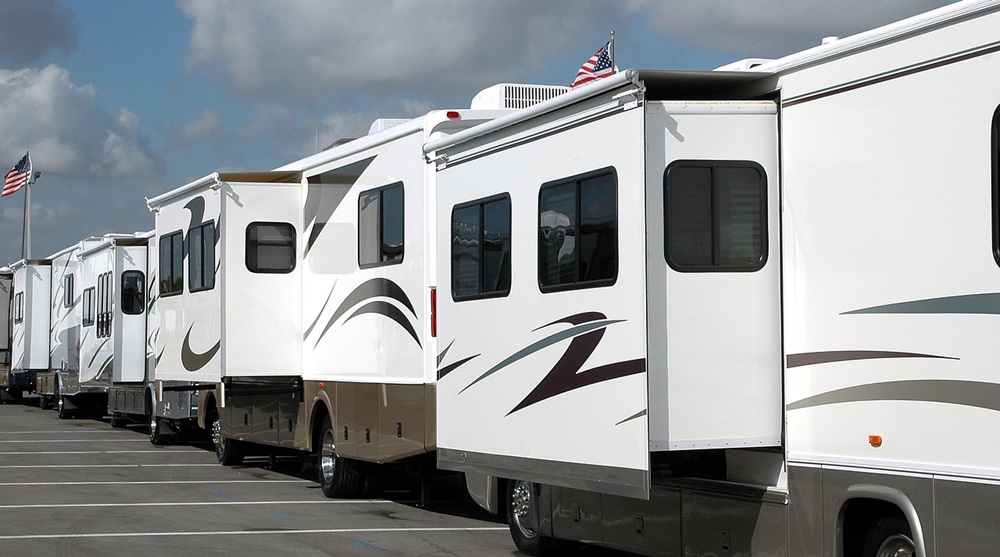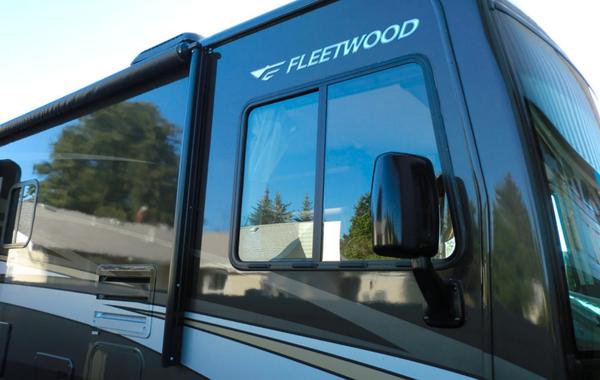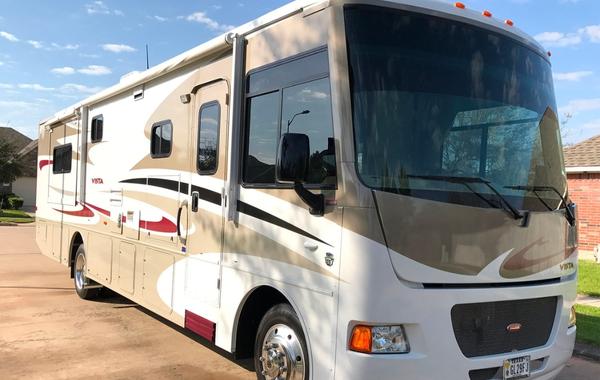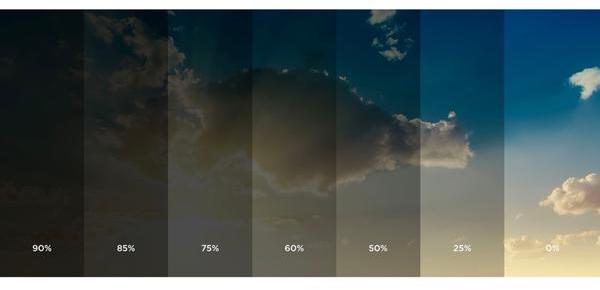Benefits of RV Window Tinting

What are the benefits of RV window tinting? If you own an RV, then you know the importance of having secure and comfortable living quarters while on the road. But did you know that tinting your RV windows could significantly enhance both those factors?
Not only do window tints provide privacy and security against prying eyes, they can also help keep a balanced temperature in your RV throughout different climates, making it easier to enjoy outdoor adventures without worrying about extreme temperatures inside.
In this blog post we’ll explore all the unique benefits of getting your RV windows tinted and whether or not it’s worth adding this simple upgrade to your vacation setup. Read on for more information…

What is Window Tinting?
Window Tinting is the process of adding a thin film to the glass windows of your RV, transforming it into privacy shields that reduce glare, protect the interior from fading, block harmful UV rays, and even help keep things cooler in summer.
The films come clear and colored so you can choose whatever style suits you best – all made from hardwearing materials like polyester for long-lasting effects. It’s easy to install it yourself or you can bring in a professional to take care of business. Either way, your windows will be ready for some well-deserved darkness and insulation.
Click the link for a step-by-step guide on how to apply window tinting to your RV.
Benefits of Tinting Your RV Windows
If you’re an RV owner, you know how important it is to keep your vehicle in good condition – and that includes the windows. Not only do tinted windows make your RV look better, but they can also provide a number of benefits for you and your passengers.
From preventing sun damage to blocking out UV rays, let’s take a look at the benefits of adding window tinting to your RV and why it could be a wise investment.

Enhance Your Privacy
Window tinting your RV is a great way to keep your camper secure. With the right shade, you’ll be able to reduce visibility into its interior and ensure that nosy neighbors are kept out of sight. That means more peace-of-mind for everyone inside – especially when it comes to protecting valuable items from potential thieves.
Add Another Level of Security
Outfitting your RV with tinted windows not only adds privacy, but also gives you the peace of mind that comes from greater security. That’s because certain tints come with an adhesive film to make it harder for intruders to break through glass. An added bonus is if anything does happen and the window shatters, there’s extra protection against potential injuries as it will keep the shattered glass together.
Keep Your RV Cooler in Summer
Not only can window tinting give a stylish look to your RV, but it also makes for much more comfortable living. Whether you’re camping in the summer heat or taking an extended road trip, reducing interior temperatures by blocking out some of that pesky sun is key – and with window tints, you can do just that.
Look After The Interior of Your RV
Don’t let the sun ruin your RV’s interior! Installing window tint on your RV is a great way to prevent fading and damage caused by ultraviolet rays. With this added protection, you can enjoy driving in comfort knowing that your upholstery, floors, and walls are safe from harmful sunlight exposure.
Different Types of Window Tinting Material
There are different types of window tinting film that you can use. Here are the most common types on the market…
Dyed Window Tinting Film
Want to darken your RV windows for privacy without breaking the bank? Consider dyed window tinting – it gives you a cool, opaque look from inside, but shields outside views of your ride. Just watch out for fading and discoloration that can occur over time. Look into color-stable films if you want more longevity.
Metalized Window Tinting Film
With metalized window film, you’re getting more than just enhanced protection from UV and heat – it’s also stronger, less prone to scratches, and wonderfully reflective. To get the layer of metal on there in the first place takes a special process called sputtering which uses different metals for differing levels of radiation blocking power.
However, if your RV is full of electronic gadgets like cell phones or GPS receivers that rely on incoming signals then this might be tricky as interference can occur with any outside signals trying to reach within its walls.
Carbon Window Tinting Film
Get blackout vibes in any space with this super durable carbon-based window tinting film. It’s fade-resistant and offers serious protection from heat and UV rays, plus no metal is involved so it won’t mess up your electronics. For the money, this is probably the best type of window tinting film for your RV.
Ceramic Window Tinting Film
This window tinting film is something special – it’s made from ceramic nanoparticles that are so small you can’t see them. It offers superior protection for your RV, blocking harmful UV rays and up to 70% of infrared heat.
And the best part? With no metal in its composition, this type of film won’t interfere with your phone calls or GPS navigation – ensuring clarity and reduced glare on your windshields. It comes at a cost, but if you want the best type of window tinting for your RV, then try this.
Specialty Films
Want to spruce up your RV or trailer? Give it a unique look with some specialty window tinting films. These come in colors like red and have cool effects, like holographic designs or silver mirror. But be aware: depending on the state you’re in, using these kinds of tints might not fly – so we suggest reserving them for trailers only.
RV Window Tinting FAQs
How much does it cost to tint your RV windows?
The cost of RV window tinting varies greatly depending on the size and number of windows to be tinted, as well as the quality of the film used. On average, it can range anywhere from $200 to $500 per window.
However, if you choose a more premium quality film, then expect to pay closer to $750 or more per window. It is also important to factor in the labor costs associated with installation when budgeting for your RV window tint project – this can add up quickly depending on how many windows need to be covered.
Additionally, some states may require additional fees for registration or inspection of the tint job. All in all, it’s best to consult a professional before getting started so that you have an accurate estimation of the total cost.
The good news is that RV window tinting can last a long time, so although it may be a significant investment initially, it will pay off in the long run.
Are there any laws I should be aware of?
If you’re thinking about adding window tint to your RV, know that there are no specific Federal regulations for RVs – it falls under the same rules as motor vehicles.
The general standard is set by FMVSS No. 205 which requires a minimum VLT (visible light transmission) of 70%. That means at least 70% of visible light needs to be able pass through the windshield and driver/passenger side windows.
If your RV windows already have a tint, be sure to have your VLT calculated before and after adding an additional tint.

Can I install window tinting myself?
Installing the window tinting can be a great way to save money, but it’s definitely not for the faint of heart. It requires skill, patience and an eye for detail – otherwise you could end up with bubbles or poor adhesion that would lead to disappointment rather than savings. But if you’re confident in your DIY know-how you can tackle this job and see those cash rewards roll in.
Tinting Your RV Windows Offers Much More Than Shade
Tinting windows on your RV isn’t just a style upgrade. It can also make your ride more comfortable and secure. You may be wondering about the legalities, costs, or how to do it yourself – but don’t worry.
It’s not easy and you need the right tools if you’re doing it yourself. If you do need to pay a professional, however, we feel it’s well worth it.
We think window tint is an important investment for any road-tripper with plenty of rewards in store. Have patience if you decide to tackle this job solo – trust us when we say that spending time now could pay off big time down the line.

Hello, fellow wanderers! I’m Alyssia. Since 2008, my husband and I have called an RV our home, journeying through life one mile at a time. Our nomadic lifestyle has led us to over 70 countries, each with their unique tales that have shaped our own.
I share our stories and insights right here, hoping to inspire and guide you in your own adventures. Expect tips on RV living, our favorite camping spots, breathtaking hiking trails, and the joys and challenges of an ever-changing view from our window. Alongside, you’ll also find practical advice on outdoorsy stuff, designed to equip you for any journey. Join us as we continue to explore the vast, beautiful world on wheels!